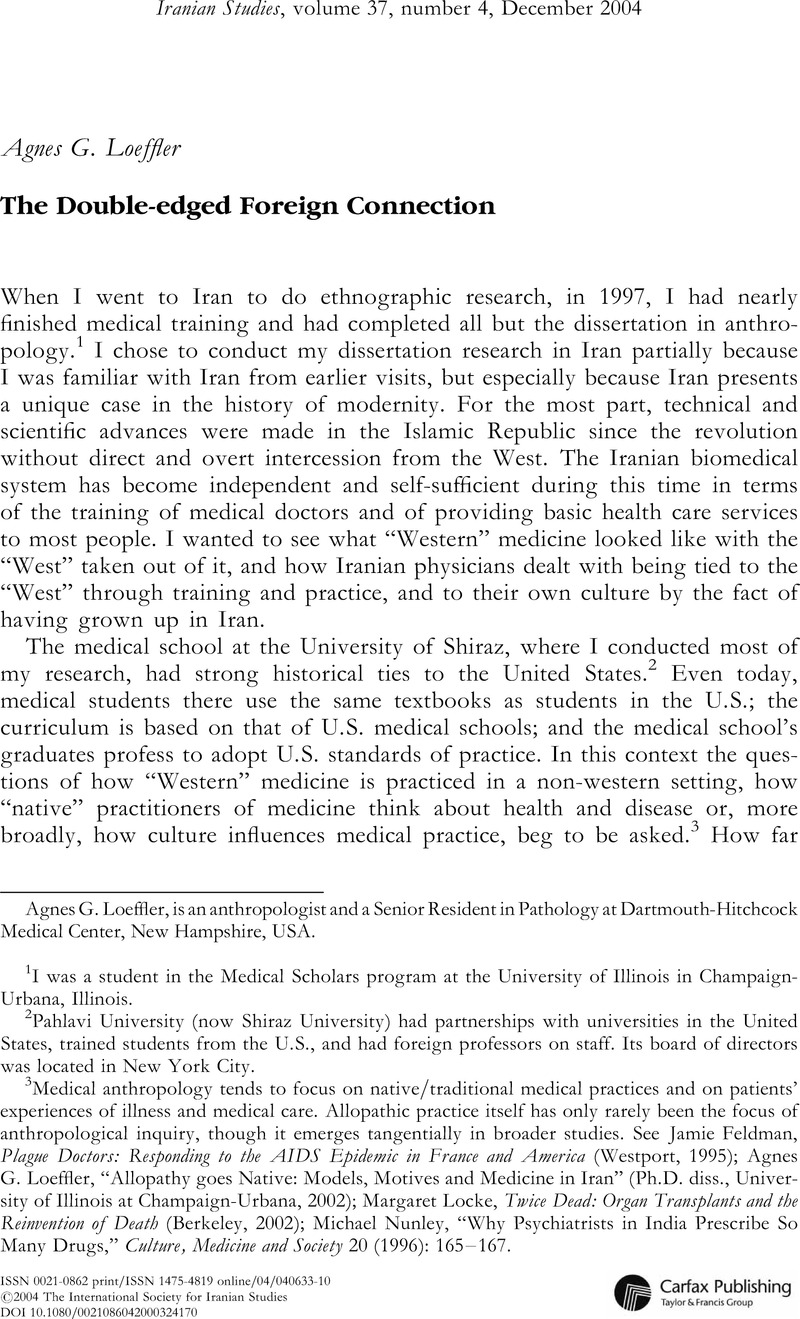Article contents
The Double-edged Foreign Connection
Published online by Cambridge University Press: 01 January 2022
Abstract

- Type
- Articles
- Information
- Iranian Studies , Volume 37 , Issue 4: Special Issue: Ethnographic Fieldwork in Iran , December 2004 , pp. 633 - 642
- Copyright
- Copyright © 2004 The International Society for Iranian Studies
References
1 I was a student in the Medical Scholars program at the University of Illinois in Champaign-Urbana, Illinois.
2 Pahlavi University (now Shiraz University) had partnerships with universities in the United States, trained students from the U.S., and had foreign professors on staff. Its board of directors was located in New York City.
3 Medical anthropology tends to focus on native/traditional medical practices and on patients' experiences of illness and medical care. Allopathic practice itself has only rarely been the focus of anthropological inquiry, though it emerges tangentially in broader studies. See Feldman, Jamie, Plague Doctors: Responding to the AIDS Epidemic in France and America (Westport, 1995)Google Scholar; Loeffler, Agnes G., “Allopathy goes Native: Models, Motives and Medicine in Iran” (Ph.D. diss., University of Illinois at Champaign-Urbana, 2002)Google Scholar; Locke, Margaret, Twice Dead: Organ Transplants and the Reinvention of Death (Berkeley, 2002)Google Scholar; Nunley, Michael, “Why Psychiatrists in India Prescribe So Many Drugs,” Culture, Medicine and Society 20 (1996): 165–167Google ScholarPubMed.
- 1
- Cited by




